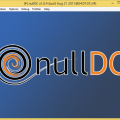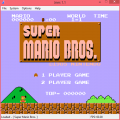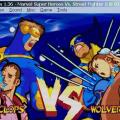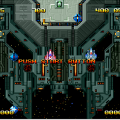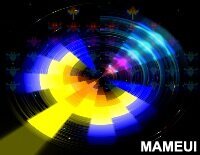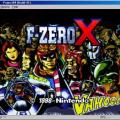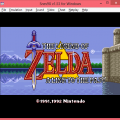- added: chdman settings option to ignore warning for BADDUMP chds
- added: rebuilder advanced option to list matched chds (so that's a first step towards chds rebuilding)
- misc: dummy clones/fake clone (100% identical sets) detection now takes chds into account
- misc: show prompt for fixing wrong sysdefpath issues
- misc: ignoring chds in matchgame function for some speedup here and there
- misc: updated rar dll
- fixed: crash when using setinformation->show enabled
- fixed: create rompaths for sysdefpaths can rarely create an empty path which will then be "current path"
- fixed: wrong sysdefpath issue output was sometimes missing when chds and roms didn't share the same path
- fixed: sysdefpath auto-rompath creation didn't ask for standard/mechanical/devices
- 0 replies
- 1,798 views
- Add Reply
- 0 replies
- 2,735 views
- Add Reply
- 1 reply
- 2,253 views
- Add Reply
- 0 replies
- 3,654 views
- Add Reply
Clrmamepro 4.07 released

http://mamedev.emulab.it/clrmamepro/download.htm
What's new recently?4.07
BSNES v090 released

http://byuu.org/?page=bsnes&bg=3
Yes, this new version has Nintendo DS emulation!
Most notably, this release adds Nintendo DS emulation. The Nintendo DS module was written entirely by Cydrak, so please give him all of the credit for it. I for one am extremely grateful to be allowed to use his module in bsnes.
The Nintendo DS emulator's standalone name is dasShiny. You will need the Nintendo DS firmware, which I cannot provide, in order to use it. It also cannot (currently?) detect the save type used by NDS games. As such, manifest.xml files must be created manually for this purpose. The long-term plan is to create a database of save types for each game. Also, you will need an analog input device for the touch screen for now (joypad axes work well.)
There have also been a lot of changes from my end: a unified manifest.xml format across all systems, major improvements to SPC7110 emulation, enhancements to RTC emulation, MSU1 enhancements, icons in the file browser list, improvements to SNES coprocessor memory mapping, cleanups and improvements in the libraries used to build bsnes, etc.
I've also included kaijuu (which allows launching game folders directly with bsnes) and purify (which allows opening images that are compressed, have copier headers, and have wrong extensions); both of which are fully GUI-based.
This release only loads game folders, not files. Use purify to load ROM files in bsnes.
Note that this will likely be the last release for a long time, and that I will probably rename the emulator for the next release, due to how many additional systems it now supports.
PCSX2 1.0 released

http://pcsx2.net/244-pcsx2-1-0-released.html
http://pcsx2.net/download.html
After many long years of development, debugging and testing effort, we have reached a point where PCSX2 runs a great majority of the games, and there are no important issues that could possibly be fixed without requiring major modifications to the emulator.
Because of that (and because we already felt it was overdue), we decided to stop thinking of new things to do for a bit, polish the stability, compatibility and existing features and release the result as the first major version of PCSX2!
There have been tons of changes since the last release, including improvements to Jake Stine's wxWidgets GUI overhaul, cottonvibe's new multithreaded VU core and improvements on the primary plugins.
This release is a big milestone that marks the way to new features and improvements!
Here is an excerpt of the latest changes:
Windows
Core:
* Video timing adjustments
* microVU fixes for Metal Gear Solid 2 and others
* General speedups
* microVU speedup
* New GIF unit that mimics the real one better
* microVU elementary function bug fixed (affecting Valkyrie Profile 2, Radiata Stories and Star Ocean 3)
* Implemented Multi-Threaded VU! A new speed hack with almost 100% compatibility with games, using a third core to run the VU1 unit separately
* CDVD fixes (Time Crisis boots now)
* Added support for progressive scan timings
* Path 3 arbitration and timing refinements
* Added Finnish, Malaysian, Korean, French, Indonesian, Italian, Japanese and Polish translations
SPU2-X:
* Configurable output volume
* Fixes to reverb
* Various sound looping fixes
* Improved time stretcher
* Reverse phase audio quality improved
GSdx:
* Fixed RGB mode movie recording
* Texture cache change that fixes some black screening games
* Implemented NVidia FXAA 3.10, page up key activates it
* Better multithreading
* Arc the Lad bad fog fix
* Fixed shadows in software renderer
* Implementation of GSdx "Shadeboost" project (saturation, brightness, contrast settings)
* User configurable hacks in the GUI
* Fixed flickering in many FMVs
* Implementation of GSdx "Cutie" project (various extra CRC hacks)
Lilypad:
* Pad state getting stuck with savestates bug fixed
USBqemu:
* Revamped it a bit
Linux:
OnePad changes:
* New dialog configuration panel
* Improved support of various pad (sixaxis)/mouse/wiimote
* Added support for more controllers
* Added support for pressure-sensitive buttons
GSdx:
* GSdx ported for Linux! Based on OpenGL 3.3 with some 4.x hardware independent extensions. Requires OpenGL 4.2 drivers and is still in experimental stages. Don't expect the hardware renderer to run properly, but the Software renderer should be fine.
* Added support for configuration and keyboard shortcuts from PCSX2
ZZogl:
* Added support for configuration and keyboard shortcuts from PCSX2
* Added a GLSL backend to replace CG. Like GSdx, it requires OpenGL 4.2 drivers. Only available with PCSX2 self-compilation.
PCSX2 GUI:
* Added thread timing information to see the CPU usage in the status bar
* Fix multiple frame/box letters sizing.
In addition to these changes we found a fixed several bugs that could lead to crashes in various situations.
The PCSX2 executable has been built and tested with PGO optimizations enabled so it will be an extra 10% faster over regular SVN builds.
We hope you enjoy this first major version release and have fun playing your games on it!
PCem 0.7 released.

PCem is an emulator for old XT/AT-class PCs. It emulates :
- IBM 5150 PC
- IBM 5160 XT
- Tandy 1000
- Generic XT clone
- DTK XT clone
- Schneider EuroPC
- Amstrad PC1512
- Sinclair PC200
- Amstrad PC1640
- Amstrad PC2086
- Amstrad PC3086
- IBM AT
- Commodore PC30-III
- Dell System 200
- AMI 286 clone
- Acer 386SX/25N
- Amstrad MegaPC
- AMI 386 clone
- AMI 486 clone
- AMI WinBIOS 486 clone
- AMI PCI 486 clone (Shuttle HOT-433)
with 640k of RAM (1-64mb for AT and 286/386/486), 2 floppy drives (up to 2.88mb), 2 hard drives, CGA, MDA, Hercules, EGA (PC1640 only), VGA or SVGA, SoundBlaster, GameBlaster, GUS, and a mouse. It can run both DOS-based games and booter games, as well as Windows.
3rd August 2012
PCem v0.7 released. Windows 98 now works, Win95 more stable, more machines + graphics cards, and a huge number of fixes.
This is likely to be the final version of PCem.

